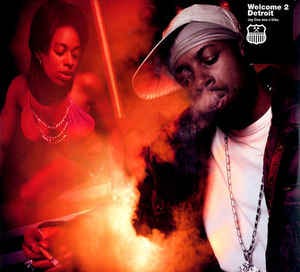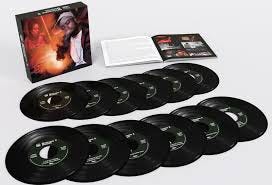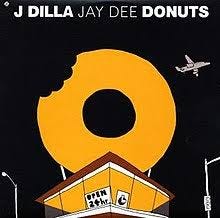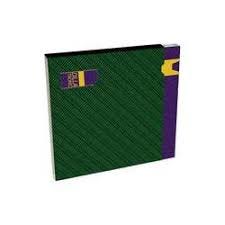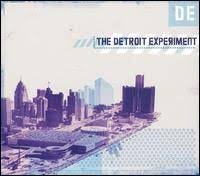The Dilla Beginning
A new boxed set offers insight into the first artistic step of a transformative producer.
Given how much material has surfaced in the years since the influential producer J. Dilla – aka Jay Dee, James Dewitt Yancey – left the planet in 2006, the “bonus” stuff on a new box devoted to his 2001 artist debut Welcome 2 Detroit seems slight. It’s really just the original album (remastered) plus a handful of remixes, instrumental “working” tracks, alternate-take demos and a few jams – spread out over 12 7-inch vinyl singles. (Also included is an extensive book with rare photos.).
The album was the first time Yancey used the J Dilla moniker, which would identify all his subsequent work as a recording artist. One of the album’s memorable tracks, “Think Twice,” appears six times. Even those who regard Dilla as the most inventive producer in hiphop history might consider that to be a few iterations too many; admittedly, this was my initial reaction. Then I listened in the order presented, starting with the album version. This most familiar Dilla take follows the structural outline of its source – a Donald Byrd soul-jazz original from the 1975 album Stepping Into Tomorrow that revolves around the wickedly restrained drum patterns of Harvey Mason. Dilla frames the horn stabs and other elements of Byrd’s original within gorgeous cymbal textures and his own minimal beat – which also dominates the “Instrumental” version.
The third “Think Twice” is a lightly dusted remix of the original by DJ Muro; the fourth remixes Dilla’s instrumental version to incorporate stray vocal shouts, mellow keyboards and several soloistic guitars but none of Byrd’s original horn work.
The fifth is an alternate take notable for its groove changes: Dilla starts with a more generic, almost wishy-washy beat, then after a minute or so kicks out a jarring and dramatic Temptations-style pattern on the hi-hat cymbal. That’s followed by another, equally radical groove change later on, suggesting that Dilla was testing ways to deliver the theme over various grooves within a prescribed tempo range.
The final version is Dilla’s “Cassette Demo,” and it’s as good a programming clinic as any tutorial made for new users of drum machines and samplers. Starting with a slapback-heavy beat, Dilla works a series of mutations, each turning on an almost imperceptible shift in emphasis. A bell tree chimes and disappears. Stray conga slaps come and go. Some drum fills loop right back into the basic pulse. Others lead to new patterns, and the transitions are not always computer smooth: Start at around 1:50 to hear how, just by adding what might have been a mistaken extra beat, Dilla transforms a stock pattern into a dramatic event. (Another example of rhythmic witchcraft: The slightly extended remake of Azymuth’s “Rico Suave Bossa Nova,” which brings the seductive namesake drum pattern to the center of the mix.)
Now, of course, we recognize this as one of the elements of his legacy. Back when he was developing Welcome 2 Detroit, it was a side thing, because Dilla was a production machine working double-time on records for Common, De La Soul, the Roots, Madlib (via the terrific 2003 collaboration Champion Sound under the moniker Jaylib) and many others. Hearing the Dilla process at the beginning of his own tragically short recording career is an occasion for awe: At the way he attended to every last blip and texture in a groove matrix; at the method (gift?) he had for making repetitive beats hypnotic; at his sense, which was transformational beyond hiphop, that every detail of a production could be massaged and morphed into something else.
And then look where Dilla took those ideas. The projects that followed – particularly his defining last work Donuts and The Shining, which was completed posthumously by the great Detroit drummer Karriem Riggins – make clear that Dilla was evolving rapidly. And, significantly, he was gleefully trampling genre boundaries and conventional wisdom about what hiphop could be: There are tracks on the astonishing Dillatronic compilation that bask in calming pastoral ambience, and tracks with backward backbeats and strange haunting strings that suggest horror-film danger lurking just ahead.
And remember this as you immerse in the deceptively engaging Dillatronic: These, too, are sketches. Raw ideas. Brief flings with inspiration that he never got to follow up in his lifetime.
One listening path for exploring the world of J Dilla: Welcome 2 Detroit; Common: Electric Circus; Jaylib: Champion Sound; Innerzone Orchestra: “People Make the World Go ‘Round from Programmed; J Dilla: Donuts; J Dilla; The Shining; J Dilla; Dillatronic.
And for a separate mini-history lesson, trace the path Byrd’s “Think Twice” took through hiphop and neo-soul and jazz (via the indelible Carl Craig version on The Detroit Experiment) with this informative Vinyl Factory playlist.
Yes, we have a fancy digital suggestion box. Share your favorite Underloved/Overlooked records here: echolocator@gmail.com.
Please consider subscribing (it’s free!). And…..please spread the word! (This only works via word of mouth!)

